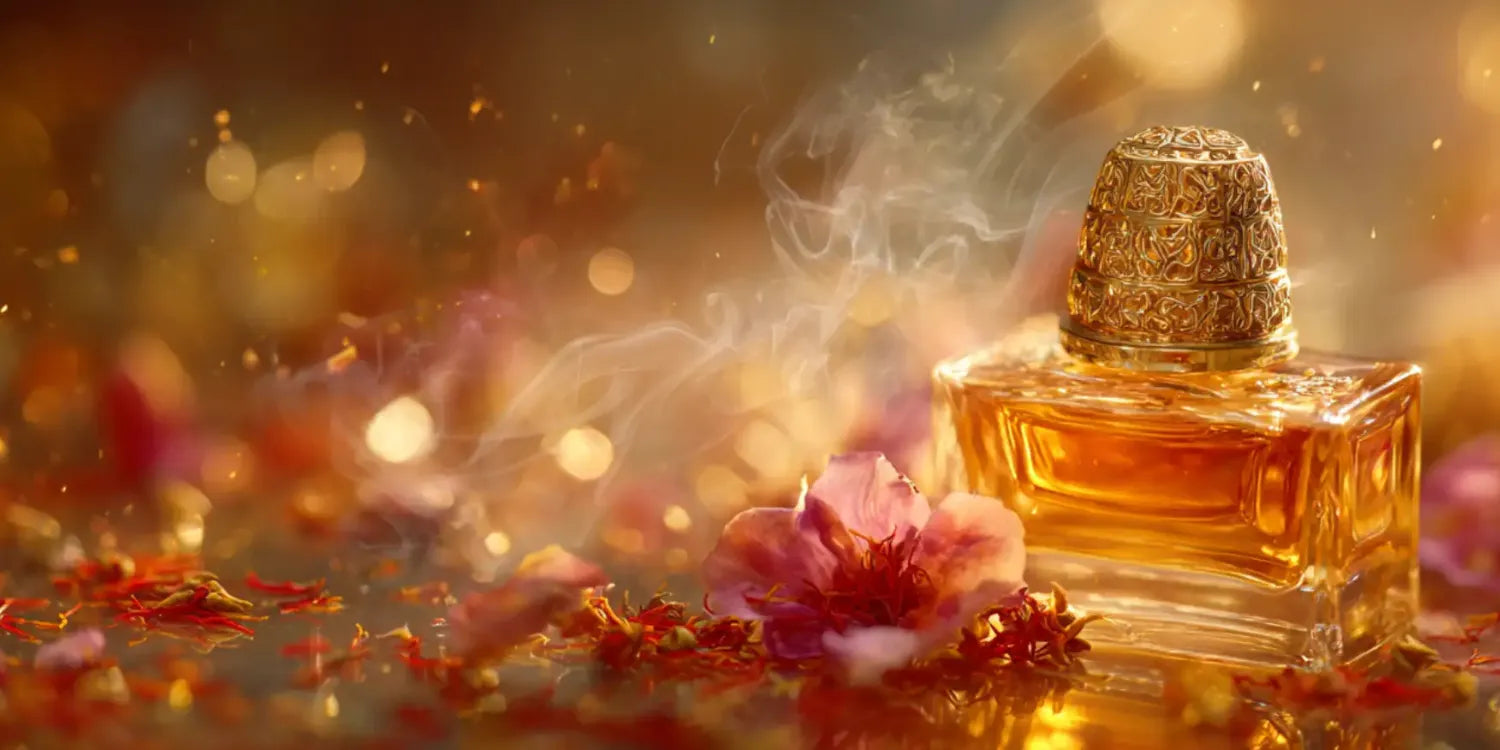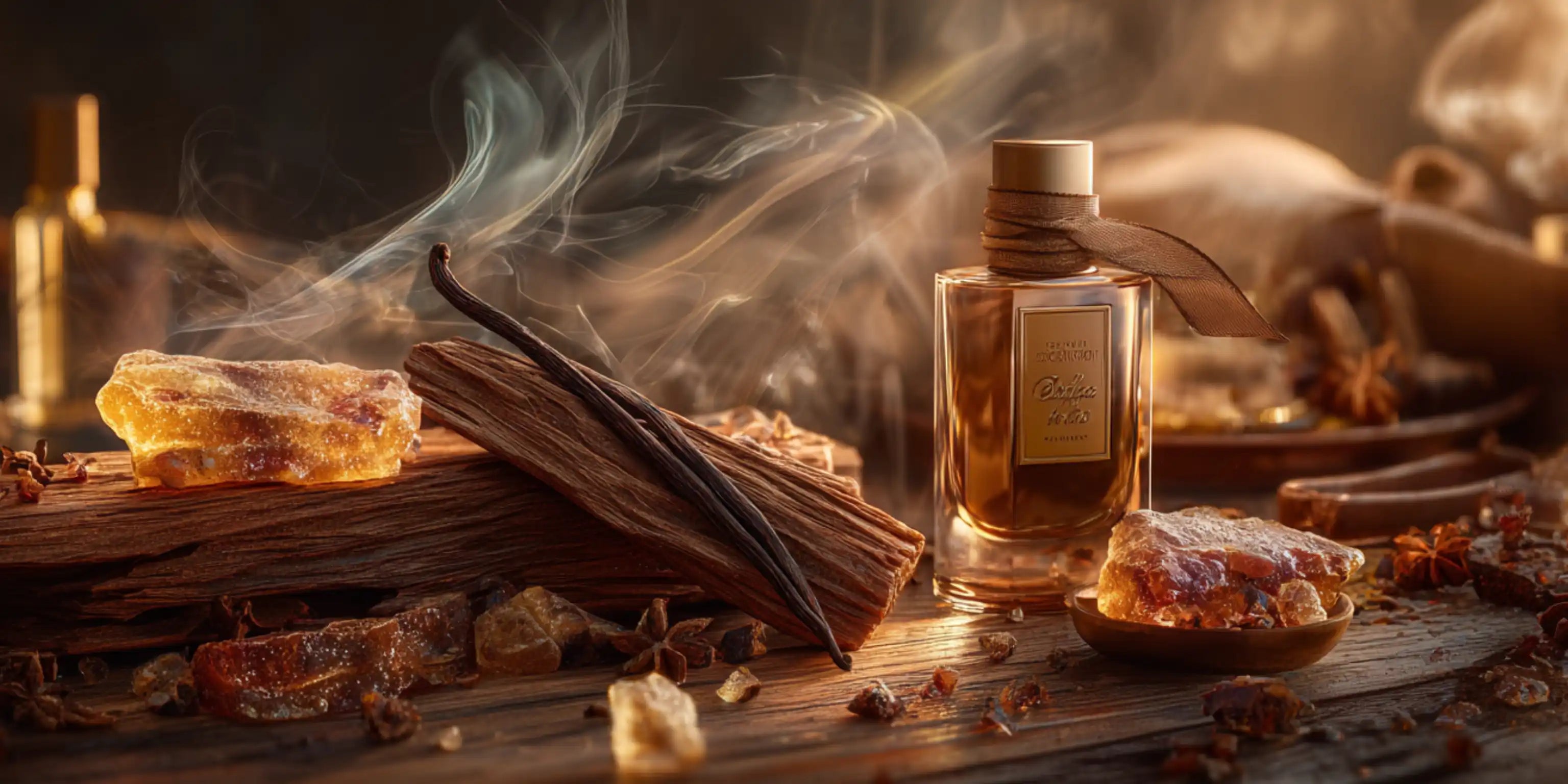
Why Perfume Smells Different on Each Person – and How to Find the Right Scent for You
Why Does the Same Perfume Smell Different on Each Person?
It’s a phenomenon everyone has experienced: you love how a fragrance smells on someone else, you spray it on your own skin – and suddenly it feels completely different. On some people it becomes soft, warm and inviting, on others fresh and bright, and on others even sharp or soapy. Yet it is the exact same perfume from the exact same bottle. The reason is simple: perfume is not a static product. It reacts with you – with your skin, your temperature, your lifestyle and even your mood. A fragrance is always the combination of its composition and your personal body chemistry. Understanding this helps you choose perfumes that truly work with your skin and suit your style.
Your Skin Chemistry: the Invisible Partner of Every Perfume
Our skin is a living organ. It has its own pH value, produces oils, moisture and hosts an individual skin microbiome. All of these factors influence how perfume molecules develop on the skin. The skin’s pH level is usually slightly acidic. If it shifts – for example due to harsh cleansing, medication or certain skincare products – the fragrance can “tilt.” Citrus top notes like bergamot, orange or grapefruit may fade more quickly or develop a slightly sharp undertone. The skin’s natural microbiome also plays a role. Skin bacteria break down certain fragrant molecules while enhancing others. This is especially noticeable with notes like musk, amber, oud or certain woods, where individuals can experience completely different depths and nuances.
Dry or Oily Skin: How It Affects Longevity and Intensity
A key factor is whether your skin tends to be dry or oily. Dry skin contains fewer lipids for fragrance molecules to cling to. The result: – perfumes often fade faster – fresh top notes evaporate more quickly – scents can feel lighter, more transparent – the fragrance profile seems flatter or less persistent Oily skin provides more “anchors” for fragrance. Therefore: – perfumes smell richer and fuller – longevity increases – warm, sweet and oriental notes develop more intensely For people with dry skin, concentrated perfume oils can be very helpful. They melt into the natural lipid layer and create better longevity. If your fragrances tend to “disappear after an hour,” a rich lotion underneath or a concentrated perfume oil can compensate beautifully.
Men’s Skin vs. Women’s Skin: Are There Differences?
While every skin is individual, there are general tendencies. Men’s skin is often: – thicker – more intensely blood-circulated – naturally oilier, especially in the face – influenced by shaving and aftershave products A woody or amber-based men’s fragrance can become extremely powerful on male skin because warmth and natural oils intensify diffusion. Notes like oud, leather, patchouli, amber or spices often become deeper and more pronounced. Women’s skin tends to be: – slightly drier – influenced by lotions, body oils and creams – hormonally variable during the cycle A floral fragrance can smell softer and creamier on well-moisturised female skin, while the same perfume may seem brighter or lighter on very dry skin. Anyone who shares unisex perfumes – such as oud, vanilla or fresh woods – quickly notices: the same fragrance can become clean and woody on one person, and surprisingly soft or even gourmand on another.
Body Temperature, Daily Routine & Lifestyle
Another important factor is body temperature. People who warm up easily or lead an active lifestyle smell perfumes differently than those who are mostly stationary. Warm skin intensifies evaporation: – stronger projection – more noticeable sillage – faster transition from top notes to heart and base Active or sporty individuals often notice that their scents “bloom” once they move. Someone with a calmer daily routine may experience the same fragrance as smoother and more subtle. External factors also matter: climate, humidity and season. An oriental scent with amber and oud smells elegant and refined in winter – but can feel extremely intense in the summer heat. This is why seasonal selections can help, such as citrus and floral perfumes for warm days or a dedicated oud collection for colder months.
Hormones, Stress & Mood: The Invisible Influences
Hormones influence not only emotions but also skin chemistry. The menstrual cycle, pregnancy, menopause or hormonal changes can alter how a favourite fragrance behaves. Some women notice their perfume feels sweeter or stronger during certain phases; others find scents suddenly too intense. Stress also affects fragrance. Under pressure, sweat composition changes, skin may become more reactive, and our perception shifts. A soft, powdery fragrance can feel comforting on a relaxed day – yet overwhelming when stressed. Psychology plays a role too: if a perfume is tied to a positive memory, we perceive it as pleasant. Another person with different associations may find the same notes heavy or distracting.
Perfume on Clothing, Beards & Hair
Perfume behaves very differently on fabrics. Clothing has no pH value, no enzymes, no living microbiome – therefore the fragrance stays clearer and more linear. Warm, sweet and amber-based scents linger especially long on textiles. – cotton absorbs perfume but releases it gradually – wool and scarves can hold perfume for days – synthetic fabrics may sharpen certain notes Men who apply fragrance to their beard experience yet another dimension. Heavy notes like oud, amber, leather and spices cling remarkably well to facial hair. An oriental scent from the amber collection can smell far stronger in a beard than on freshly shaved skin. Hair – whether on men or women – is also an excellent fragrance carrier. A light mist on the hair or scarf creates a soft, elegant aura throughout the day.
Why Test Strips Only Tell Half the Story
Test strips are useful for narrowing down fragrance families. They reveal the idea of a perfume: its structure, brightness, warmth or sweetness. But they never show how the scent behaves on your skin. A paper strip cannot reflect: – heat – skin microbiome – oils and moisture – interaction with skincare, hair or clothing A perfume that smells perfect on paper may become too sharp or too sweet on your skin. Conversely, a fragrance that seems simple on a strip may reveal unexpected depth and beauty on your body. It is always worth testing your favourites directly on your skin over several hours.
How to Find a Perfume That Truly Suits You
The secret lies in patience. The first seconds only show the top notes. The true personality of a perfume emerges after 20–30 minutes, and the full character becomes clear after two to three hours. Ask yourself: – Does the fragrance feel harmonious on my skin? – Does it become softer or sharper over time? – Is it too sweet, too fresh or perfectly balanced? – Do I want to smell it again – or am I glad when it fades? If you notice that warm, sweet or oriental fragrances suit you, browse collections like vanilla or amber. Many shops offer curated selections such as a vanilla collection or seasonal winter scents. If fresh, citrus or green notes feel right, choose perfumes with herbs, citrus fruits and light woods.
Practical Tips to Make Your Perfume Last and Perform Better
Moisturise your skin:
Perfume lasts longer on well-hydrated skin. A neutral, unscented lotion underneath enhances both longevity and depth. Try perfume oil:
If your fragrances seem to disappear quickly, concentrated perfume oils can help. They blend with your natural skin oils and create exceptional depth, especially with oriental and woody notes. Use pulse points:
The sides of the neck, wrists, inner elbows and décolleté are ideal spots because the skin is naturally warmer there. Do not rub:
Rubbing breaks down delicate top notes. Simply spray and let it settle. Include clothing:
A light mist on a scarf, sleeve or collar creates a soft, long-lasting scent trail. One or two sprays are enough. Be careful after shaving:
Men should avoid spraying directly onto freshly shaved skin. Aftershaves and alcohol-based products can alter fragrance development. Allow some time or choose a different area.
Conclusion: Your Scent Is Your Signature
When the same perfume smells completely different on two people, it is not a flaw – it is what makes fragrance so fascinating. Your skin, lifestyle, mood and natural chemistry shape the scent into something unique. Instead of comparing yourself to how a perfume smells on others, embrace your personal scent story. The notes that harmonise with your skin will always feel more refined, natural and effortless. A well-chosen perfume – whether a bold men’s fragrance, a soft feminine blend or an elegant unisex composition – becomes part of your identity. And that is why it will always smell different on you than on anyone else.


